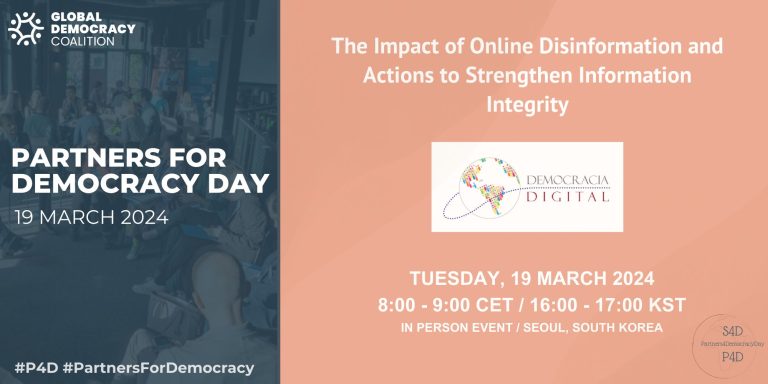Online disinformation is one of the foremost concerns in today’s interconnected society, given its detrimental impact that can destabilise democracies. In recent years, we have witnessed how the Internet and digital technologies have been used to disseminate misleading content, laden with fake news, often manipulating populations in particularly sensitive contexts such as elections or democratic participation processes.
Moreover, during the Covid-19 pandemic, an unprecedented wave of infodemic emerged, alerting global authorities and jeopardising people’s health and safety. Nowadays, the risk is heightened by the development of emerging technologies, such as generative artificial intelligence, which despite its immense potential, could also pose a threat to information integrity. With the emergence of new methods and forms of disinformation, ranging from videos, audios, chatbots, avatars, and other tools, with broader and more targeted reach, it is imperative to act collectively.
There is no single solution to this challenge. It is essential for all stakeholders to take action: to prevent its production and dissemination, to raise awareness and prevent its impact, to educate, to fact-check, to regulate, among other measures. Each actor has a significant role to play in this monumental task.
This event delved into today’s complex digital landscape, highlighting the challenges of online disinformation as well as collective strategies to combat its influence.
Participating panelists were:
- Elaine Ford, presenting.
- Danielle Piatkiewicz, Alliance of Democracies Foundation, commentator.
- Peter Micek, Access Now, commentator.

